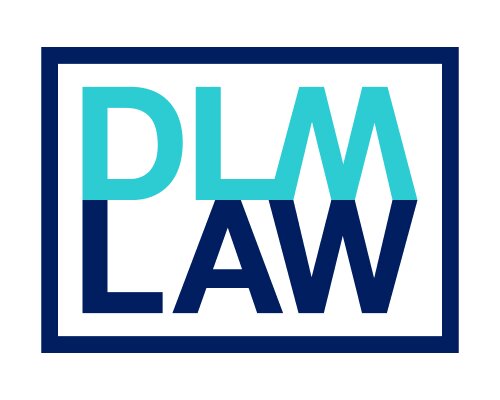Best Sanctions & Export Controls Lawyers in United States
Share your needs with us, get contacted by law firms.
Free. Takes 2 min.
Or refine your search by selecting a city:
List of the best lawyers in United States
About Sanctions & Export Controls Law in United States
Sanctions and export controls law in the United States refers to a set of regulations and policies designed to govern the transfer of goods, technology, software, and services across US borders. These laws help further US foreign policy and national security objectives by restricting certain economic activities with specified countries, entities, and persons. Export controls specifically limit the export of sensitive products and information, while sanctions typically target specific countries, governments, individuals, or entities to prevent support of undesirable actions or behaviors such as terrorism, human rights violations, or the proliferation of weapons.
Why You May Need a Lawyer
Navigating US sanctions and export controls can be complex and challenging. Legal assistance is often crucial in scenarios such as:
- Engaging in international business transactions involving foreign customers, suppliers, or partners
- Dealing with products, software, or technology that might have military or dual-use applications
- Responding to a government investigation or enforcement action
- Seeking licenses or authorizations for export activities
- Conducting due diligence before mergers, acquisitions, or investments involving overseas entities
- Training employees and developing compliance programs for your business
- Assessing risk when traveling or communicating internationally for business purposes
- Correcting or disclosing past violations
A specialized lawyer can help interpret regulations, secure necessary permits, and provide defense or guidance to minimize penalties for violations.
Local Laws Overview
The United States has a robust framework of export control and sanctions laws that apply to individuals and businesses located in or operating through the US. Key aspects include:
- Export Administration Regulations (EAR): Administered by the Bureau of Industry and Security (BIS), EAR applies to dual-use items and certain commercial products, technology, and software.
- International Traffic in Arms Regulations (ITAR): Overseen by the Department of State, ITAR restricts exports of defense-related articles and services.
- Office of Foreign Assets Control (OFAC) Regulations: OFAC enforces US sanctions targeting specific countries, regimes, entities, and individuals engaged in activities threatening US interests.
- Anti-Boycott Laws: The US restricts participation in foreign boycotts that are not sanctioned by the federal government.
- End-Use and End-User Controls: Even legal products may require scrutiny if the recipient or intended use raises concerns.
- Penalties and Enforcement: Violations can result in severe criminal and civil penalties, including imprisonment, fines, loss of export privileges, and reputational harm.
These laws can apply to US persons and companies wherever located, and sometimes to foreign actions involving US-origin items or technology. It is critical to understand the specific requirements and applicability to avoid unintentional violations.
Frequently Asked Questions
What is the purpose of US sanctions and export controls?
Sanctions and export controls are designed to support US foreign policy and national security by regulating or prohibiting certain exports, reexports, and economic transactions with specified individuals, organizations, or countries.
How do I know if my product or service is subject to export controls?
Products, software, and technology are often classified under specific export control lists such as the Commerce Control List (CCL) or US Munitions List (USML). Determining jurisdiction is essential and may require legal review or guidance from regulators.
What is an export license, and when do I need one?
An export license is an official government authorization allowing the export or transfer of controlled items, technology, or services. Licenses are required when shipping to certain countries, end-users, or for sensitive items and technologies.
Are US persons and companies responsible for compliance abroad?
Yes. US export control and sanctions laws generally follow US persons wherever located and can apply to foreign operations involving US-origin items or technology.
Can I do business with a company or person in a sanctioned country?
Doing business with individuals, entities, or governments in sanctioned countries is often restricted or prohibited. It is crucial to screen customers and partners against current OFAC and other government lists.
What are the consequences of violating sanctions or export controls?
Violations can result in significant civil and criminal penalties, including multi-million dollar fines, imprisonment, denial of export privileges, and reputational damage.
How do I report or address a possible past violation?
Seeking prompt legal advice is recommended. In some cases, voluntary self-disclosure to relevant agencies may mitigate potential penalties.
What are dual-use items?
Dual-use items are products, software, or technologies that have both commercial and military or proliferation-related applications. These often face heightened controls.
What is the difference between EAR and ITAR?
EAR covers dual-use and commercial items, while ITAR applies specifically to defense articles, services, and technical data.
How can I improve my company’s compliance?
Establish comprehensive compliance programs, provide employee training, regularly update screening procedures, and consult with qualified legal counsel as necessary.
Additional Resources
If you need further information or official guidance, consider consulting the following resources:
- Bureau of Industry and Security (BIS)
- Office of Foreign Assets Control (OFAC)
- Directorate of Defense Trade Controls (DDTC)
- US Department of Commerce
- US Department of State
- US Department of Treasury
- Export.gov
- American Bar Association - Export Controls and Economic Sanctions Committee
- International Trade Administration
- Various reputable law firms specializing in international trade law
Next Steps
If you believe you or your business may be affected by US sanctions or export controls, the following steps can guide your actions:
- Assess whether your goods, software, or technology are subject to US export controls or sanctions
- Screen all business partners, customers, and counterparties for sanctions risks
- Consult relevant US government agency guidance for your specific circumstances
- Document your compliance efforts and keep abreast of ongoing regulatory changes
- Contact a qualified attorney with experience in sanctions and export controls to evaluate your risks, provide compliance training, handle license applications, or assist with investigations and enforcement actions
Timely legal advice can help prevent costly mistakes and ensure your business remains compliant with all US laws and regulations relating to sanctions and export controls.
Lawzana helps you find the best lawyers and law firms in United States through a curated and pre-screened list of qualified legal professionals. Our platform offers rankings and detailed profiles of attorneys and law firms, allowing you to compare based on practice areas, including Sanctions & Export Controls, experience, and client feedback.
Each profile includes a description of the firm's areas of practice, client reviews, team members and partners, year of establishment, spoken languages, office locations, contact information, social media presence, and any published articles or resources. Most firms on our platform speak English and are experienced in both local and international legal matters.
Get a quote from top-rated law firms in United States — quickly, securely, and without unnecessary hassle.
Disclaimer:
The information provided on this page is for general informational purposes only and does not constitute legal advice. While we strive to ensure the accuracy and relevance of the content, legal information may change over time, and interpretations of the law can vary. You should always consult with a qualified legal professional for advice specific to your situation.
We disclaim all liability for actions taken or not taken based on the content of this page. If you believe any information is incorrect or outdated, please contact us, and we will review and update it where appropriate.
Browse sanctions & export controls law firms by state in United States
Refine your search by selecting a state.

















